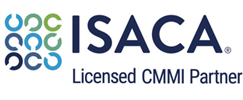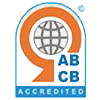ISO 22000 Certification is an important international standard designed to set out robust guidelines for the management of food safety. The ISO 22000 standard is comprehensive and covers the entire food chain, covering every company from farm to fork. That means whether you are a primary food producer, processor of food or distributor, and a food establishment, adhering to the requirements of ISO 22000 demonstrates a commitment to provide safe foods. The main goal for this certificate is to improve the management of food safety across different organisations, creating a common strategy for reducing potential dangers and protecting the health of consumers. When they implement this standard, companies not only conform with the best practices of the world but also improve their image and gain the trust of consumers.
ISO 22000 Certification includes a number of universally accepted important elements essential to ensure food security across the entire supply chain. These comprise interconnected communication and emphasize the importance of a clear and consistent information exchange between all parties, both internal and external. This will ensure that issues with food safety are detected and dealt with promptly. Additionally, the standard emphasizes the management of systems and encourages the use of a systematic approach for controlling food safety. This includes establishing clear procedures, responsibilities, and a written record. The most important aspect of this is the prevention of safety risks by implementing pre-requisite programs (PRPs) and complete HACCP strategies. The PRPs establish the foundation to ensure a clean and safe environment, as HACCP (Hazard Analysis and Critical Control Points) regularly identifies, assesses, and manages dangers that are important for food security.
ISO 22000 Certification is a strong advocate for constant improvement and updates for the system of management to ensure food safety. This is a reflection of the ever-changing quality of safety in food, where new threats and innovations always emerge. The organizations are encouraged to regularly evaluate their processes, find areas to improve, and adjust their systems to the changing risks and regulatory changes. This continuous improvement ensures an effective food safety program that is efficient, effective, and current when faced with technological advances and new information. Acquiring and maintaining ISO 22000 certification provides an internationally recognized guarantee that an organization is operating an effective, proactive strategy for addressing the risks associated with food safety, which benefits both consumers and businesses.




